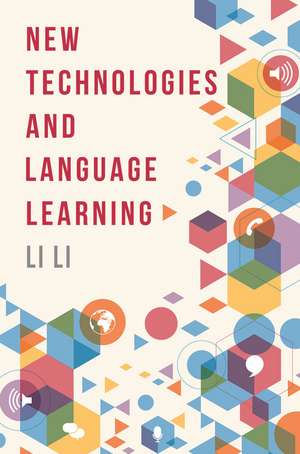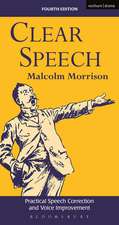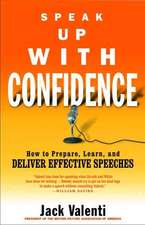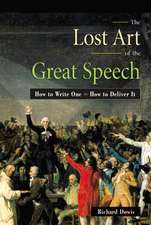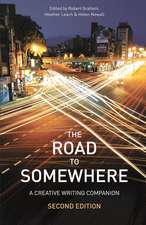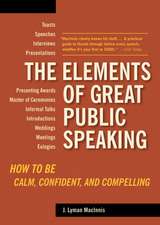New Technologies and Language Learning
Autor Li Lien Limba Engleză Paperback – 23 apr 2017
Preț: 232.07 lei
Nou
Puncte Express: 348
Preț estimativ în valută:
44.41€ • 46.49$ • 36.74£
44.41€ • 46.49$ • 36.74£
Carte disponibilă
Livrare economică 15-29 martie
Preluare comenzi: 021 569.72.76
Specificații
ISBN-13: 9781137517678
ISBN-10: 1137517670
Pagini: 256
Ilustrații: 60 bw illus
Dimensiuni: 155 x 235 x 23 mm
Greutate: 0.41 kg
Ediția:1st ed. 2017
Editura: Bloomsbury Publishing
Colecția Red Globe Press
Locul publicării:London, United Kingdom
ISBN-10: 1137517670
Pagini: 256
Ilustrații: 60 bw illus
Dimensiuni: 155 x 235 x 23 mm
Greutate: 0.41 kg
Ediția:1st ed. 2017
Editura: Bloomsbury Publishing
Colecția Red Globe Press
Locul publicării:London, United Kingdom
Caracteristici
Packed with interactive activities, ideas for project features inspired by real-life student work, and case studies that explore a variety of EFL contexts
Notă biografică
Li Li is Senior Lecturer in Language Education at the University of Exeter, UK. She has been involved in English language teaching and research for nearly 20 years in various cultural contexts, and has published widely on language education. She has guest edited the journal Thinking Skills and Creativity, and serves as editorial board member for Classroom Discourse. She is the author of Social Interaction and Teacher Cognition (Edinburgh University Press, 2017) and co-editor, with R Wegerif and J C Kaufman, of The Routledge International Handbook of Research on Teaching Thinking (Routledge, 2015).
Cuprins
PART A: OVERVIEW1. Overview of new technologies in language education2. The role of technology, motivation and SLAPART B: TECHNOLOGY, LANGUAGE SKILLS AND KNOWLEDGE3. Technology and developing interactional competence4. Technology, collaborative writing and online literacy5. Technology for lexico-grammatical acquisition6. Technology and ESPPART C: MATERIALS, FEEDBACK AND TEACHERS7. e-learning material evaluation and design8. Feedback and alternative assessment9. Language teachers and new technologies.
Recenzii
Li's book is concise and accessible, and will attract a wide range of readership. It promises to be an essential reading for undergraduates and postgraduates studying language teacher training programmes, and more specifically MA TESOL degrees. It is also an excellent resource for academics pursuing a research-led teaching methodology. As such, it has already taken its place in the list of essential reading for my CALL module at Newcastle University.
